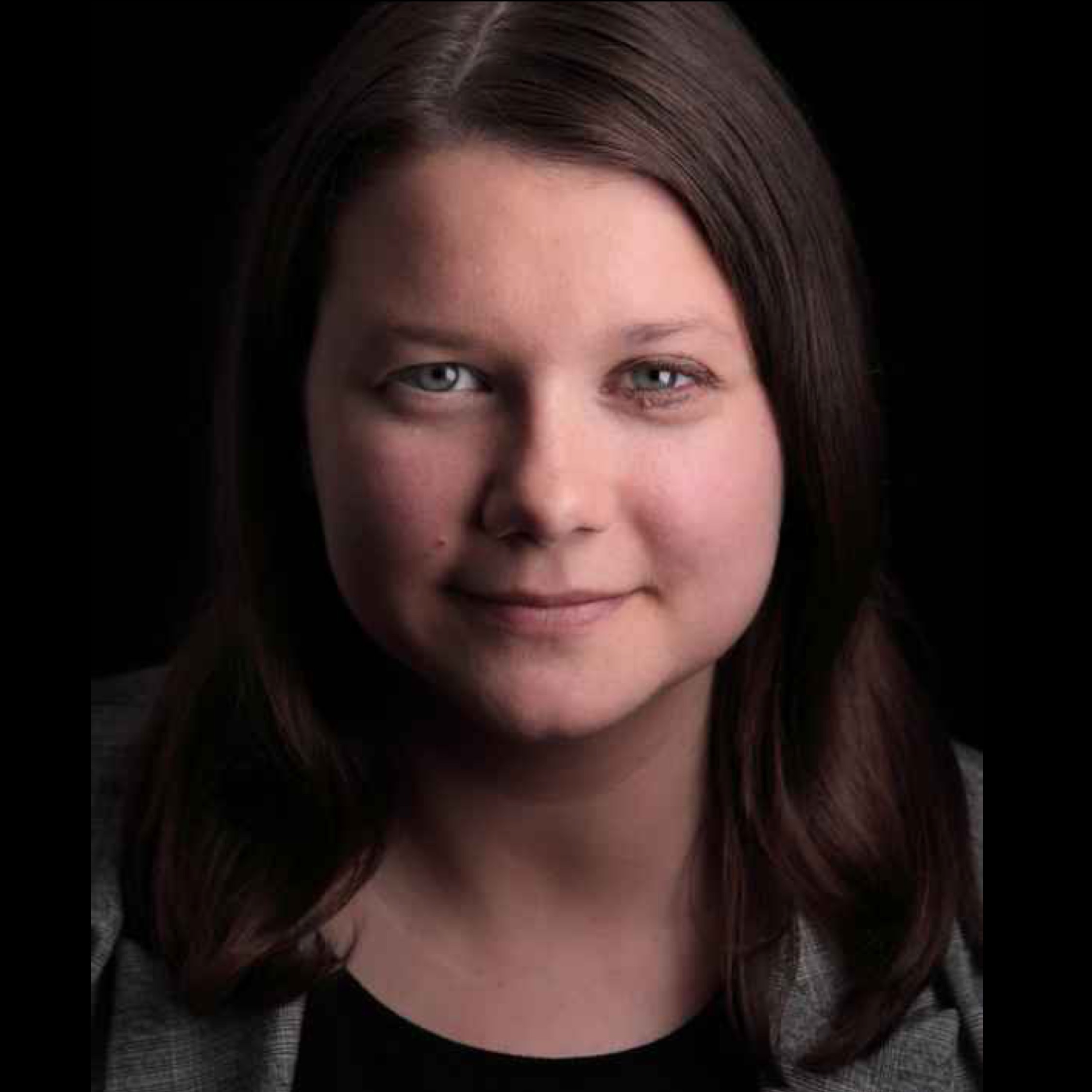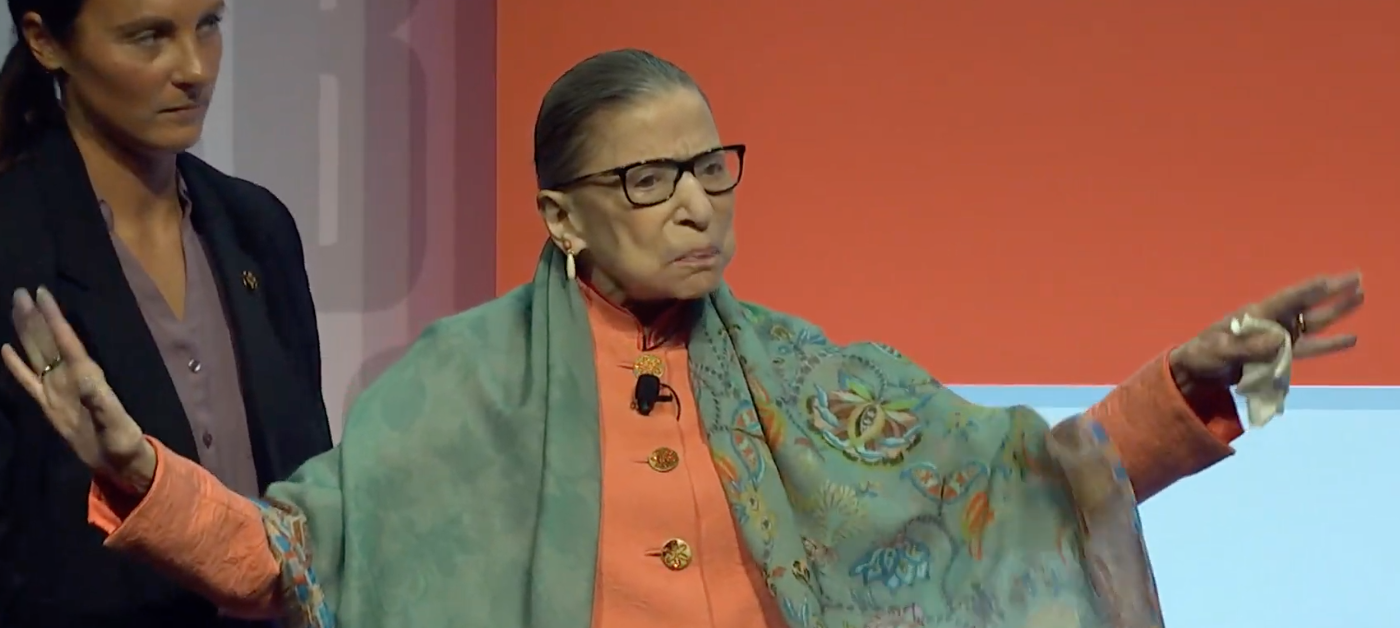Ginsburg takes main stage at National Book Festival

on Sep 1, 2019 at 8:38 am

At the Library of Congress National Book Festival in Washington, D.C., yesterday, Justice Ruth Bader Ginsburg took the main stage before 4,000 people who lined up as early as 4 a.m. to hear the featured author discuss her book “My Own Words.” Published in 2016, the book is a collection of Ginsburg’s writings compiled and contextualized by Wendy W. Williams and Mary Hartnett. The book is the first of two official biographies, projects 15 years in the works and counting. Nina Totenberg, NPR’s legal-affairs correspondent, sat with Ginsburg, Williams and Hartnett to discuss the books and Ginsburg’s friendships with Justices Sandra Day O’Connor and Antonin Scalia, among other things.
Williams and Hartnett offered to write Ginsburg’s biography so that it would be in the hands “of people she really trusts.” To keep up with the justice over the years, the authors have met with Ginsburg for three consecutive afternoons every August to discuss the previous term and Ginsburg’s other adventures. Hartnett said that this year was a little different, with Ginsburg receiving radiation treatment for a tumor on her pancreas: “This year, we went up to New York where she was getting her radiation treatment … and we sat with her twice up there. She was perfectly normal, except she was very tired. But she never let it stop her.”
“How have I been?” Ginsburg smiled, “Well, first, the audience can see that I am alive.” Following thunderous applause from her admirers, she added: “And I am on my way to being very well,” and countered Totenberg’s concern that she should be resting up for the term: “We have more than a month to go. I will be prepared when the time comes.”
Ginsburg said that her job – “the best and the hardest” she has ever had – keeps her going through what is now her fourth bout of cancer. Focusing on her work while fighting cancer may seem extraordinary, but Ginsburg reminded the audience of a time when securing any job as a young female lawyer was almost impossible. Ginsburg explained that there were three strikes against her when she graduated from law school in 1959: “Well, I was, first, a Jew and there were many well-known firms in New York that were not yet up to welcoming Jews. The next, I was a woman. That was a higher barrier. But the absolute killer was I had a four-year old daughter when I graduated law school. So, if they would take a chance on a woman, a mother was more than they were willing to risk.”
When Ginsburg applied for a clerkship, she recalled, her Columbia Law School professor, Gerald Gunther, called every federal judge on the U.S. Court of Appeals for the D.C. Circuit and in the Eastern District of New York with no success. “Yes, those were pre-Title VII days,” Ginsburg said. “So employers were up-front about saying, ‘Women are not welcome at this workplace’ or ‘We had a lady-lawyer once, and she was dreadful.’”
When Gunther finally called Judge Edmund Palmieri, a Columbia graduate, Palmieri said, “‘I’ve had women law clerks, and they’re okay. But she’s a mother. And sometimes we have to work on weekends, even on a Sunday.’” Gunther continued to advocate for Ginsburg, offering both a carrot – he had a young male replacement lined up if needed – and a stick – he would never recommend another Columbia graduate to Palmieri if the judge did not hire Ginsburg. “And that’s the way it was in the not-so-ancient days for women,” Ginsburg explained.
After 12 years as the only woman on the Supreme Court bench, O’Connor became a natural mentor to Ginsburg: “She was as close as I came to having a big sister.” In remarks from 2015 included in the book, Ginsburg said one critical piece of advice from O’Connor came when Chief Justice William Rehnquist assigned Ginsburg a first opinion that was not, as was traditional, a unanimous or uncontroversial decision. When Ginsburg sought O’Connor’s guidance, O’Connor said, “‘Just do it and, if you can, circulate your draft opinion before he makes the next set of assignments. Otherwise, you risk receiving another tedious case.’” Although O’Connor dissented in the 6-3 case, the more senior justice wrote Ginsburg a note that read, “This is your first opinion for the Court, it is a fine one. I look forward to many more.”
Ginsburg passed on that tradition when Justices Sonia Sotomayor and Elena Kagan announced their first opinions for the Supreme Court. It’s not just that women now comprise one-third of the bench, Ginsburg said, but that her “two sisters-in-law are not shrinking violets. I think for some years,” Ginsburg mused, “there was a rivalry between Justice Scalia and Justice Sotomayor: Who could ask the most questions?”
Williams and Hartnett said they have set aside an entire chapter of Ginsburg’s biography to the justice’s friendship with Scalia. When interviewing Scalia for both books, Hartnett said, his face “just softened and lightened up as he talked about Ruth.” At the close of the event, Ginsburg recited Scalia’s lines in the “rage aria” that opens Derrick Wang’s “Ginsburg/Scalia: A (Gentle) Parody of Operatic Proportions:”
“The Justices are blind! How can they possibly spout this? The Constitution says absolutely nothing about this.” And then I answer him, “Dear Justice Scalia, you are searching for bright line solutions for problems that don’t have easy answers. But, the great thing about our Constitution is, like our society, it can evolve.”
Although Ginsburg’s friendship with Scalia is often described as “unlikely,” Ginsburg seems to disagree, citing the opera’s closing duet: “We are different. We are one. Different in our approach to legal texts, but one in our reverence for the institution we serve and for the United States Constitution.”
One case from last term arose during the hour: Rucho v. Common Cause, which held 5-4 that partisan-gerrymandering claims present political questions beyond the jurisdiction of the federal courts. In his majority opinion, Chief Justice John Roberts pointed to independent redistricting commissions as alternative remedies to address partisanship.
Ironically, Totenberg pointed out, Roberts wrote the dissent from Ginsburg’s 5-4 opinion four years earlier in Arizona State Legislature v. Arizona Independent Redistricting Commission, the precedent that upheld redistricting commissions against a constitutional challenge. “Could you please explain what’s going on here?” Totenberg asked. “Have the court’s conservative’s changed their minds? Is this just window dressing, or what?”
“As one lives, one learns,” Ginsburg mused. “So I think the Chief learned that he was wrong in Arizona.” Ginsburg observed that a legislative monopoly on redistricting offers voters very little incentive to vote, and “that’s not the way a democracy should run.”


